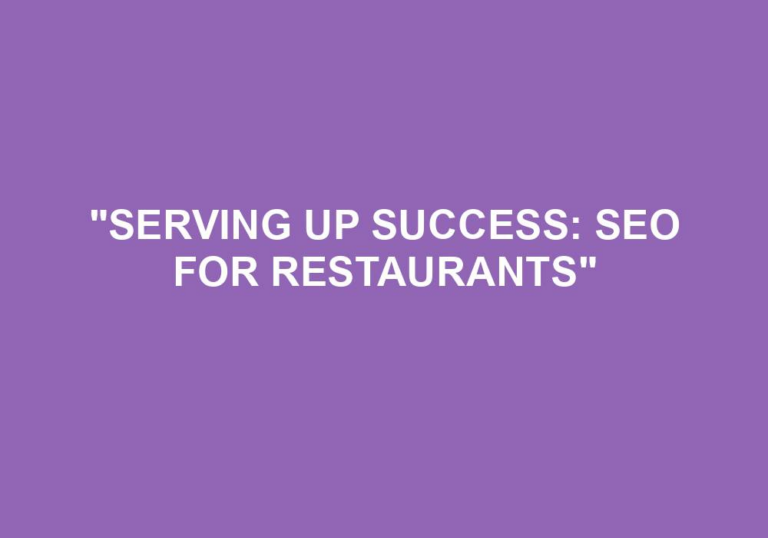Are you curious about the differences between educational and commercial SEO approaches? Well, get ready to dive into the world of search engine optimization and discover how these two strategies compare. In this article, we’ll explore the unique tactics used by these two types of websites and how they approach optimizing their content for better search rankings. So, buckle up and let’s get started on this exciting journey of educational vs commercial SEO approaches compared!
When it comes to SEO, educational websites have a different focus compared to commercial sites. They aim to provide valuable information and resources to help users learn and expand their knowledge. On the other hand, commercial websites focus on promoting products or services and driving sales. So, how does this reflect in their SEO strategies? Let’s find out!
In the world of SEO, keywords play a crucial role in determining search rankings. Educational websites tend to optimize their content with informative and educational keywords that align with their topics. On the flip side, commercial websites use keywords that are more sales-oriented and focused on generating conversions. By understanding these unique SEO approaches, you can better grasp the tactics that go behind the scenes of different types of websites. So, keep on reading to uncover more about the fascinating world of educational and commercial SEO approaches!
When it comes to SEO approaches, educational and commercial websites have different strategies. Let’s compare their key features:
| Educational Websites | Commercial Websites |
| 1. Focus on informative content | 1. Emphasize product pages |
| 2. Targeted at students and researchers | 2. Targeted at customers |
| 3. Utilize authoritative sources | 3. Highlight customer testimonials |
| 4. Prioritize backlinks from academic websites | 4. Focus on high-traffic industry websites |
| 5. Generate traffic through educational content | 5. Generate traffic through product promotions |
Educational vs Commercial: SEO Approaches Compared
When it comes to SEO (Search Engine Optimization), different approaches are required for educational and commercial websites. While both types aim to drive traffic and improve their online visibility, the strategies employed are distinct. Educational websites focus on providing valuable information and resources, while commercial websites are geared towards promoting products and services. In this article, we will delve into the key differences in SEO approaches between educational and commercial websites and explore how each can maximize their online presence.
Understanding Educational Websites
Educational websites are primarily focused on providing information and resources to learners, students, and teachers. These websites may belong to schools, universities, online courses, or educational platforms. The main purpose is to offer valuable content to educate and inform the audience. As a result, the SEO approach for educational websites revolves around creating high-quality, informative, and engaging content that is relevant to the target audience.
The Importance of Research and Authoritative Content
For educational websites, research and authoritative content play a crucial role in SEO. The content should be well-researched and backed by credible sources, such as academic journals, textbooks, and reputable websites. Educational websites need to continuously update their content to ensure accuracy and relevance. By providing accurate and authoritative information, these websites can build trust and credibility with their audience, which in turn can lead to higher rankings on search engines.
Another important aspect of SEO for educational websites is the use of keywords. Keywords should be carefully selected to align with the target audience’s search queries. It’s essential to conduct keyword research to identify the most relevant and frequently searched terms. Educators and students often search for specific topics or resources, so optimizing content with relevant keywords can increase organic traffic to educational websites.
Engaging and User-Friendly Design
In addition to high-quality content, the design and user experience of educational websites are crucial for SEO. A user-friendly and visually appealing website design can enhance the overall user experience, leading to higher engagement and longer time spent on the site. Educational websites should have clear navigation menus, intuitive interfaces, and responsive designs that adapt to different devices. Ensuring the website is mobile-friendly is especially important, as many users access educational content on their smartphones or tablets.
Furthermore, educational websites should prioritize accessibility for all users, including those with disabilities. This means implementing features such as alt tags for images, closed captioning for videos, and using proper heading structure to aid screen readers. By making the website accessible, educational websites can reach a wider audience and improve their SEO rankings.
Understanding Commercial Websites
Unlike educational websites, commercial websites are focused on selling products or services. This could include e-commerce sites, company websites, or online marketplaces. The primary goal of commercial websites is to generate revenue through conversions and sales. As a result, the SEO approach for commercial websites is heavily centered around attracting potential customers, optimizing product pages, and increasing conversions.
Optimizing Product Pages and Descriptions
One of the key aspects of SEO for commercial websites is optimizing product pages and descriptions. Each product page should have a unique and descriptive title, meta description, and optimized URL. By incorporating relevant keywords and providing accurate descriptions, commercial websites can improve their visibility in search engine results pages.
Additionally, commercial websites should prioritize user-generated content, such as customer reviews. Positive reviews can help build trust and credibility, leading to higher conversion rates. Encouraging customers to leave reviews and testimonials on product pages can greatly enhance the SEO performance of commercial websites.
Conducting Competitor Analysis and Targeted Advertising
Competitor analysis is crucial for commercial websites to stay ahead in the highly competitive market. This involves identifying competitors in the industry, analyzing their SEO strategies, and finding areas for improvement. By understanding the keywords and tactics used by competitors, commercial websites can refine their own SEO approach and optimize their content accordingly.
In addition to organic SEO, commercial websites often rely on targeted advertising to reach their target audience. Paid advertising channels, such as Google Ads and social media ads, can be highly effective in driving traffic and increasing conversions. By carefully selecting target keywords and demographics, commercial websites can optimize their advertising campaigns and achieve better ROI.
User-Focused Design and Conversion Optimization
Commercial websites must prioritize user experience and conversion optimization to succeed in SEO. The design should be visually appealing, intuitive, and encourage users to take action. Clear call-to-action buttons, easy navigation, and a streamlined checkout process are essential elements of a well-designed commercial website.
Conversion optimization techniques, such as A/B testing, can help commercial websites identify the most effective layout, design, and content for driving conversions. By continuously testing and optimizing various elements of the website, commercial websites can improve their conversion rates and overall SEO performance.
Key Takeaways – Educational vs Commercial: SEO Approaches Compared
- Understanding the key differences between educational and commercial SEO approaches is crucial.
- Educational SEO focuses on providing informative and valuable content to users.
- Commercial SEO aims to generate sales and promote products or services.
- Educational SEO requires in-depth research and expertise in a particular subject.
- Commercial SEO involves optimizing product descriptions, pricing, and convincing customers to make a purchase.
Frequently Asked Questions
Here are some common questions about educational and commercial SEO approaches, compared.
1. What is the difference between educational and commercial SEO approaches?
Educational SEO focuses on optimizing content related to educational institutions, courses, and learning resources. Its main objective is to provide valuable information, answer questions, and establish authority in the educational field. On the other hand, commercial SEO is aimed at promoting products or services offered by businesses. Its focus is on driving conversions, increasing sales, and enhancing brand visibility.
While both approaches share some similarities in terms of optimizing websites for search engines, their goals and strategies differ. Educational SEO aims to educate and inform, while commercial SEO aims to sell and generate revenue.
2. Which approach is more suitable for a blog that offers educational content?
If your blog primarily offers educational content, it would be more beneficial to adopt an educational SEO approach. This means creating high-quality and valuable content that caters to your target audience’s educational needs and interests. Implementing educational SEO strategies, such as thorough keyword research, providing in-depth explanations, and linking to reliable educational sources, can help your blog rank higher in search engine results and establish your credibility in the educational niche.
By focusing on educational SEO, you can attract a larger audience interested in learning and drive organic traffic to your blog. This approach will also help you build a loyal readership and gain authority in the educational field.
3. How does the target audience differ between educational and commercial SEO?
In educational SEO, the target audience is typically individuals seeking knowledge, students, educators, and parents. The objective is to provide valuable information and educational resources that address their specific needs and interests. On the other hand, commercial SEO targets potential customers who are looking to make a purchase or invest in a particular product or service. The goal is to attract and convert these visitors into paying customers.
Understanding the differences in target audience is crucial in developing effective SEO strategies. Educational SEO focuses on providing informative content, while commercial SEO aims to appeal to potential buyers and drive them towards conversion.
4. Can educational and commercial SEO approaches be combined?
Yes, educational and commercial SEO approaches can be combined to create a comprehensive SEO strategy. This is particularly applicable to websites or businesses that offer educational products or services. By blending educational and commercial SEO techniques, you can provide valuable educational content while also promoting your products or services.
For example, you can incorporate educational blog posts, guides, or videos in your website’s content, providing valuable information to your audience. At the same time, you can strategically optimize your product pages to attract potential customers and drive conversions. By striking a balance between educational and commercial SEO, you can cater to the needs of both informative seekers and potential buyers.
5. Which approach is more effective for long-term SEO success?
Both educational and commercial SEO approaches can contribute to long-term SEO success, depending on your specific goals and the nature of your website or business. Educational SEO can help you establish authority, gain a loyal audience, and attract organic traffic over time. By consistently providing valuable educational content, your website can become a go-to resource in your niche.
On the other hand, commercial SEO focuses on driving conversions and increasing revenue. By optimizing your product pages and implementing effective marketing strategies, you can achieve long-term success in terms of sales and business growth.
Ultimately, the most effective approach for long-term SEO success may vary depending on your industry, niche, and target audience. It’s important to evaluate your goals and choose the approach that aligns best with your overall business objectives.
Summary
So, to sum it up, educational and commercial websites have different approaches when it comes to SEO.
Educational sites focus on providing valuable and trustworthy information to users, while commercial sites prioritize selling products and services.
When it comes to content, educational sites aim to educate and inform, while commercial sites aim to persuade and convert.
In terms of keywords, educational sites target informative and long-tail keywords, while commercial sites target keywords with higher commercial intent.
Link building strategies also differ, with educational sites focusing on building authoritative and credible links, while commercial sites focus on more promotional and sales-oriented strategies.
Ultimately, the choice of SEO approach depends on the goals and objectives of the website, whether it’s to educate or to sell.
So, next time you’re on the internet, pay attention to the different SEO approaches used by educational and commercial websites. It might help you understand their intentions and find the information or products you’re looking for more effectively.





